Big Four bank savings accounts
Commonwealth Bank, Westpac, NAB and ANZ are known as Australia's "Big Four" banks, and together they dominate the market. Here are the savings accounts offered by the Big Four.
Compare other products
We currently don't have that product, but here are others to consider:
How we picked theseHow the Finder Score helps you find a better savings account
The Finder Score is a simple score out of 10. The higher a savings account's score, the better we think it is for the average customer.
We score each savings account in our database of hundreds based on a data-driven methodology with 2 main criteria: Does the account offer a high interest rate? And is it easy for savers to actually earn that rate?
Do the Big Four banks have the best savings rates?
The Big Four banks do offer very competitive savings account interest rates. However, you'll often find the best rates with some of the smaller banks.
Here are the best 4 banks for savings account rates in the market at the moment.

"If you're trying to decide between the big four banks or the smaller ones, why not both? Accounts cost nothing to open or maintain, so I like having a few; it means I can move my money around to wherever I can get the best interest rate in a given month."
What is the best bank in Australia?
Biggest doesn't necessarily mean best. And 'best' means different things to different people, depending on what you're looking for in a bank.
Best bank for consumer trust
Every month Finder surveys hundreds of Australians about their finances in our Consumer Sentiment Tracker.
- 24% of Australians say they trust the Big Four banks.
- 23% of Australians say they do not trust the Big Four banks.
- 23% of Australians say they trust small banks.
- 9% of Australians say they do not trust small banks.
Best bank accounts for customer satisfaction
| Bank | Overall satisfaction | Trustworthy/reliable |
|---|---|---|
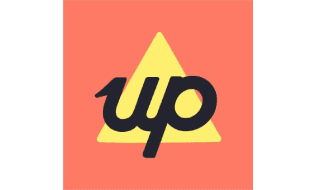 | ★★★★★ 4.63/5 | 97% |
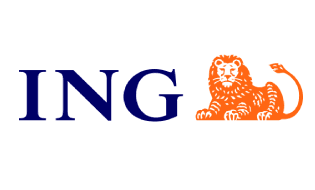 | ★★★★★ 4.48/5 | 100% |
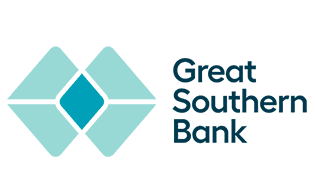 | ★★★★★ 4.39/5 | 91% |
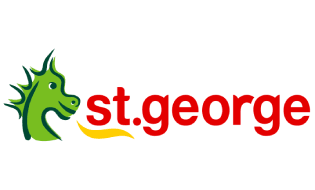 | ★★★★★ 4.31/5 | 97% |
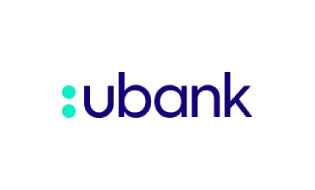 | ★★★★★ 4.23/5 | 91% |
The Finder Customer Satisfaction Awards ask Australians which brands and products they trust and love the most. We surveyed hundreds of Australians to rate their bank accounts, with Up Bank coming out as number one.
Finder survey: What is the most popular bank for Australian savings accounts?
Finder surveyed over 1,100 Australians about which bank they have a savings account with and found that nearly 30% of respondents have a Commonwealth Bank savings account.
| Response | |
|---|---|
| Commbank | 29.65% |
| ANZ | 14.2% |
| Other | 11.23% |
| Westpac | 10.6% |
| NAB | 10.24% |
| ING | 6.83% |
| St.George | 4.13% |
| Bendigo Bank | 3.41% |
| Macquarie | 2.07% |
| BOQ | 1.89% |
| I don't have a savings account | 1.71% |
| Great Southern Bank | 1.35% |
| Ubank | 1.35% |
| HSBC | 0.81% |
| Rabobank | 0.36% |
| Up Bank | 0.18% |

"The vast majority of Australians are not comparing banks to find the best service and product for their needs. Most of us stick to the bank we had as kids. We're missing out on higher interest rates for the sake of convenience."
Just how big are the Big Four banks?
To get a sense of just how big the Big Four banks are, here's the dollar value of household deposits currently held by each bank.
- CBA: $390.118 billion
- Westpac: $303.394 billion
- NAB: $204.034 billion
- ANZ: $172.620 billion
Now compare that to the amount of household savings deposited at Australia's largest non-Big Four banks.
- Macquarie Bank: $63.083 billion
- ING: $49.655 billion
- Bendigo & Adelaide Bank: $44.291 billion
- Suncorp: $34.464 billion
- Bank of Queensland: $34.811 billion
The Big Four hold $800 billion more than their 5 closest competitors combined.
How to find the best bank in Australia for your needs
You'll have to decide for yourself what the best bank is for your specific needs. Here are some factors to consider when making a decision:
- Compare rates, fees and features. When you're looking to get a new bank account, loan or credit card, you should always compare rates and fees to make sure the product is competitive (high rate for a saving account, low rate for a loan). Make sure the product has features that suit your needs.
- What level of service are you looking for? If you want a personal touch and branch support, a Big Four bank with a local branch might be your best option. If you want really fast online support or don't have a Big Four bank branch near you, then you might look at other banks.
- Customer reviews. Reading online reviews can help you get a sense for a bank's level of customer service. This is particularly true for smaller and newer banks.
- Convenience. The Big Four banks have useful smartphone apps that let you manage your bank, card and loan accounts easily. Many other banks have good apps too, but some simply don't. You might also decide that the convenience of having all your accounts in one place outweighs the benefits that come with a higher savings rate or lower fees.
- Awards. You can check the winning banks at Finder's annual banking awards.
FAQs
Sources
Ask a question
34 Responses
More guides on Finder
-
Savings accounts with no conditions
These savings accounts let you earn a decent ongoing interest rate on your cash with no annoying hoops to jump through.
-
Bendigo Bank Reward Saver Account
Read Finder's review of the Bendigo Bank Reward Saver. Learn how you can earn the maximum bonus interest rate with this account.
-
ME HomeME Savings Account
You can earn a really impressive ongoing bonus rate of 4.6% p.a., however you need to deposit $2,000 per month.
-
Bankwest Easy Saver account
The Bankwest Easy Saver account offers a bonus rate for the first 4 months, then an ongoing standard variable rate with no conditions to meet.
-
Bank of Queensland Simple Saver Account
Check out out review of the Bank of Queensland Simple Saver Account.
-
Australian interest rate history
See historical interest rates for savings accounts since January 2012.
-
High interest savings accounts Australia
Kickstart your savings plan with a high interest savings account.
-
Best savings accounts Australia
See some of the best savings accounts in Australia right now with high interest rates and no fees, plus tips to help you find the best savings account for you.
-
ING Savings Maximiser
The ING Savings Maximiser is a high interest savings account with a competitive interest rate when you meet the account conditions. Here's how to earn the top bonus rate with this account.
-
Savings interest calculator
Our range of simple calculators can help you plan your finances and compare potential interest earned.



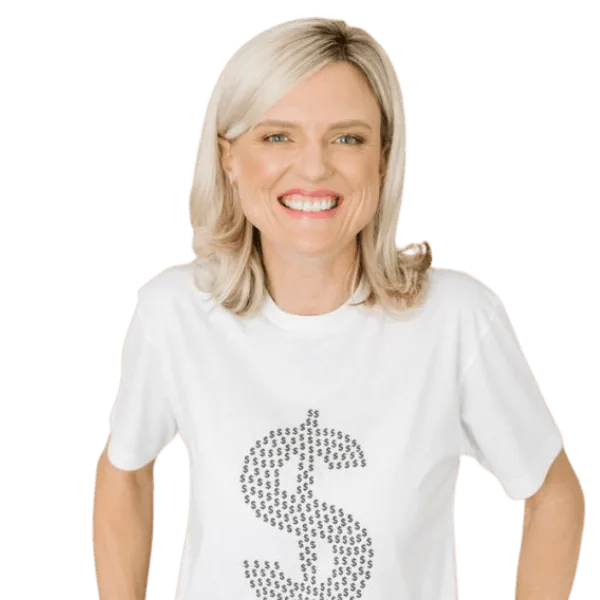
We live in a real world, how about some list of how the banks answer the telephone, whether their call centres are in Australia or overseas? I am currently with Westpac who have carried out a very underhand move and not publicised it, how do I choose a new bank that cares about its customers?
Hi Dave,
I understand that customer service is one of the deciding factors in choosing a bank. You can explore your options by checking Finder’s list of banks with the highest satisfaction ratings for 2022.
Best,
Alison
Our CBA business bank account has been cmpromised by online fraud more than once and I am not satisfied with the bank. Which bank is the most secure in this area please?
Hi David,
Thank you for getting in touch with Finder.
Sorry to hear about your experience with CBA. Each bank has its own unique way of securing its customers’ accounts. While the chances of a major Australian bank going bust are a lot rarer than they may have been in the past, the Australian Government Guarantee Scheme even guarantees deposits of up to $250,000 in authorised deposit-taking institutions.
In a world where online-only banks and lenders are on the rise, it’s just as important as ever to make sure you deal with a bank you can trust. I suggest that you contact your chosen bank about their security feature to help you decide on changing banks then.
I hope this helps.
Thank you and have a wonderful day!
Cheers,
Jeni
I am now resident in the UK but have inherited funds in Australia – presently sitting in an account at 0.5%. I have relatives in Australia but no permanent residential address. Are there any accounts that will give a better return for a non-resident? Term deposits are not allowed by my present bank.
Hi Tecmanarthur,
Thank you for reaching out to Finder.
You may compare savings accounts for ex-pats or temporary residents. Kindly review and compare your options on the table displaying the available providers. Once you have chosen a particular provider, you may then click on the “Go to site” button and you will be redirected to the provider’s website where you can proceed with the application or get in touch with their representatives for further inquiries you may have.
Before applying, please ensure that you meet all the eligibility criteria and read through the details of the needed requirements as well as the relevant Product Disclosure Statements/Terms and Conditions when comparing your options before making a decision on whether it is right for you. Hope this helps!
Cheers,
Reggie
Hi, we want to invest $150,000 in a term deposit to give us the best interest rate, prefer 6 monthly, don’t mind if it is an advance notice etc.
Hi Rsibs,
Thank you for leaving a question.
You may refer to our list of 6-month term deposit account. You may also compare the different interest rates that each bank provides via this page. Kindly review and compare your options on the table displaying the available providers. Once you have chosen a particular provider, you may then click on the “Go to site” button and you will be redirected to the provider’s website where you can proceed with the application or get in touch with their representatives for further inquiries you may have.
Before applying, please ensure that you meet all the eligibility criteria and read through the details of the needed requirements as well as the relevant Product Disclosure Statements/Terms and Conditions when comparing your options before making a decision on whether it is right for you. Hope this helps!
Cheers,
Reggie
I’m referring to the NAB’s savings interest rate, this appears to be an introductory rate for 4 months. Can’t find what it reverts to after.
Hello Lyn,
Thank you for your comment.
You may be referring to the NAB iSaver wherein the maximum variable rate is 2.55% p.a. (combined standard variable rate of 0.50% p.a. and bonus variable rate of 2.05% p.a.) for the first 4 months on balances up to $20,000,000. This will revert to 0.50% p.a. after the introductory period.
Should you wish to have real-time answers to your questions, try our chatbox on the lower right corner of our page.
Regards,
Jhezelyn